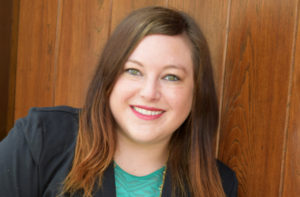“God of the #metoo and #idid” – Sunday Preview for October 22
How lucky we are to have such incredible ministries thriving in our community, none of which would be possible if not for you and the ways you show up for church. We are building community and following Jesus each and every day and it is a pleasure to be a part of this process. This week we are welcoming Rev. Dr. Ken Samuel to our pulpit. You won’t want to miss this incredible preacher!
“#Metoo.” These two words have been plastered across my social media pages all week. It is both courageous and heartbreaking. This movement highlighted what women already know: that we live in a society which doesn’t see us or value us. However, the millions of women stating that they have been a victim of sexual harassment or violence is not what has been most shocking to me. The most shocking thing was how few people took responsibility for their participation in patriarchal systems. The response hashtag of “#idid,” which asked people to admit publicly their compliance in patriarchal structures that created the space for the harassment and violence to flourish without repercussions, barely made the rounds on my feed.
We live in a society that values one’s status over the personhood of marginalized people. Taking responsibility for oppressing others is not an expectation but an afterthought, especially for the privileged. We do not value those that speak out for equality and justice, particularly when they go against those whom society reveres. And although it shouldn’t be complicated, our Scripture from the book of Matthew shows us that this has been a struggle for millennia.
‘Listen to another parable. There was a landowner who planted a vineyard, put a fence around it, dug a wine press in it, and built a watch-tower. Then he leased it to tenants and went to another country. When the harvest time had come, he sent his slaves to the tenants to collect his produce. But the tenants seized his slaves and beat one, killed another, and stoned another. Again he sent other slaves, more than the first; and they treated them in the same way. Finally he sent his son to them, saying, “They will respect my son.” But when the tenants saw the son, they said to themselves, “This is the heir; come, let us kill him and get his inheritance.” So they seized him, threw him out of the vineyard, and killed him. Now when the owner of the vineyard comes, what will he do to those tenants?’ They said to him, ‘He will put those wretches to a miserable death, and lease the vineyard to other tenants who will give him the produce at the harvest time.’
Jesus said to them, ‘Have you never read in the scriptures:
“The stone that the builders rejected
has become the cornerstone;
this was the Lord’s doing,
and it is amazing in our eyes”?
Therefore I tell you, the kingdom of God will be taken away from you and given to a people that produces the fruits of the kingdom. The one who falls on this stone will be broken to pieces; and it will crush anyone on whom it falls.’
When the chief priests and the Pharisees heard his parables, they realized that he was speaking about them. They wanted to arrest him, but they feared the crowds, because they regarded him as a prophet. (Matthew 21:33-46 NRSV)
While this text isn’t about sexual assault, it is about people not taking responsibility for the atrocious ways they treat each other and their expectations in society? Denying people their personhood, and treating them as if they are not made in the very image of God, is a sin and needs to be named as such. “#Idid” doesn’t erase the sin of violence that systems of oppression perpetuate, but it does act and take responsibility for sexual harassment and violence. God’s continuous reconciling ministry walks with us in our sin and our salvation. God says “Me, too” and brings forth the self-reflection and courage to say “I did.”
This week may we recognize God’s call for each of us to be vulnerable… and to take responsibility. May we lift up the communities that have not been seen or valued because of patriarchal systems that we have been a part of. And may we have the courage to name the ease of sin for the evil that it is and work to build a community that walks with Jesus and sees the image of God in all of creation.
Shalom Y’all.
Rev. Stephanie
Un Dios del #yo también y #yo lo hice
Amada iglesia,*
Qué bendición es tener tantos ministerios vivos en nuestra comunidad. Esto es posible gracias a ustedes y por las maneras en que estás en la comunidad. Estamos construyendo una comunidad, siguiendo a Jesús cada día. Es un verdadero placer ser parte de este proceso. Esta semana le damos la bienvenida al Revdo. Dr. Ken Samuel a nuestro púlpito. ¡No te lo quieres perder!
“#Metoo” (yo también). Dos palabras que se han plasmado a través de los medios sociales toda esta semana. Nace de la valentía y el dolor profundo. Este movimiento realza lo que las mujeres ya sabemos: que vivimos en una sociedad que no nos toma en cuenta y no nos valora. No obstante, el que millones de mujeres declaren que han sido víctimas del hostigamiento sexual o de la violencia no me sorprende. Lo que más me sorprende son las pocas personas que asumieron responsabilidad por endosar un sistema patriarcal. La respuesta de “#idid”, que invita a que las personas admitan, públicamente, su colaboración con estructuras patriarcales permisivas para que el hostigamiento y la violencia florecieran sin repercusiones, casi no se manifestó en estos medios.
Vivimos en una sociedad que valora el estatus de unos sobre las marginadas y oprimidos. Asumir la responsabilidad por oprimir a otrxs no representa una expectativa, en particular, para los privilegiados. No valoramos aquellxs que abogan por la igualdad y la justicia, sobre todo cuando alzan su voz en contra de quienes la sociedad rinde pleitesía. Aunque ya debió haberse resuelto el dilema, la Escritura tomada del libro de Mateo nos muestra que esto ha sido un asunto milenario.
»Escuchen otra parábola: Había un propietario que plantó un viñedo. Lo cercó, cavó un lagar y construyó una torre de vigilancia. Luego arrendó el viñedo a unos labradores y se fue de viaje. Cuando se acercó el tiempo de la cosecha, mandó sus siervos a los labradores para recibir de estos lo que le correspondía. Los labradores agarraron a esos siervos; golpearon a uno, mataron a otro y apedrearon a un tercero. Después les mandó otros siervos, en mayor número que la primera vez, y también los maltrataron.
»Por último, les mandó a su propio hijo, pensando: “¡A mi hijo sí lo respetarán!” Pero, cuando los labradores vieron al hijo, se dijeron unos a otros: “Este es el heredero. Matémoslo, para quedarnos con su herencia”. Así que le echaron mano, lo arrojaron fuera del viñedo y lo mataron.
»Ahora bien, cuando vuelva el dueño, ¿qué hará con esos labradores?
―Hará que esos malvados tengan un fin miserable —respondieron—, y arrendará el viñedo a otros labradores que le den lo que le corresponde cuando llegue el tiempo de la cosecha.
Les dijo Jesús:
―¿No han leído nunca en las Escrituras:
»“La piedra que desecharon los constructores
ha llegado a ser la piedra angular;
esto es obra del Señor,
y nos deja maravillados”?
»Por eso les digo que el reino de Dios se les quitará a ustedes y se le entregará a un pueblo que produzca los frutos del reino. El que caiga sobre esta piedra quedará despedazado y, si ella cae sobre alguien, lo hará polvo».
Cuando los jefes de los sacerdotes y los fariseos oyeron las parábolas de Jesús, se dieron cuenta de que hablaba de ellos. Buscaban la manera de arrestarlo, pero temían a la gente porque esta lo consideraba un profeta. (Mateo 21:33-46 NIV)
Aunque este texto no aborda la agresión sexual, trata sobre personas que no asumen responsabilidad por las maneras atroces en que se relacionan y las expectativas de la sociedad. La negación de la humanidad de personas y de no tratarlas como si fueran hechas a la imagen y semejanza de Dios es un pecado y necesita gritarse a viva voz así. “#Idid” no borra el pecado de la violencia que los sistemas de opresión perpetúan, pero si se postula, tomando responsabilidad por el hostigamiento sexual y la violencia. El ministerio constante de la reconciliación de Dios está con nosotrxs en el pecado y la salvación. Dios dice, “Yo también” y así invita a la auto reflexión y la valentía para confesar, “lo hice”.
Oremos para que esta semana podamos reconocer el llamado de Dios para con nosotrxs de ser vulnerable y asumir responsabilidad. Oremos para que podamos recordar las comunidades no valoradas ni aceptadas por el sistema patriarcal que hemos apoyado. Oremos para que podamos tener el coraje de nombrar el pecado y su maldad, y que trabajemos por una comunidad que camine con Jesús y vea la imagen de Dios en toda Su creación.
¡Paz mi gente!
Revda. Stephanie
* Translation by Rev. Jeanette Zaragoza / Traducido por la Rvda. Jeanette Zaragoza





